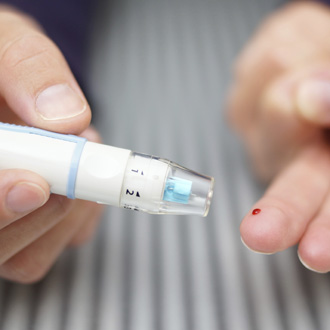NICE finalises guidance for GPs to refer to diabetes prevention scheme

NICE has published the final version of a new guideline focusing on diabetes prevention.
The plans will, as previously reported, see GPs incentivised to refer patients to the ‘Healthier You’ scheme, which focuses on lifestyle interventions.
The new guideline updates that first published in 2012, with a new focus on NHS’s flagship Diabetes Prevention Programme.
A NICE spokesperson said: ‘The NHS Diabetes Prevention Programme is currently being implemented throughout England in response to the 2012 recommendations in this guideline.
‘Implementing the 2017 recommendations will allow this programme to be initially targeted at groups of the population who will benefit most, in a way that is consistent across the UK.’
The new guidance says:
- For people confirmed as being at high risk (a high risk score and fasting plasma glucose of 5.5–6.9 mmol/l or HbA1c of 42–47 mmol/mol [6.0–6.4%]):
- Tell the person they are currently at high risk but that this does not necessarily mean they will progress to type 2 diabetes. Explain that the risk can be reduced. Briefly discuss their particular risk factors, identify which ones can be modified and discuss how they can achieve this by changing their lifestyle.
- Offer them a referral to a local, evidence-based, quality-assured intensive lifestyle change programme. In addition, give them details of where to obtain independent advice from health professionals.
- When commissioning local or national services to deliver intensive lifestyle change programmes (see recommendations 1.8.1–1.10.2) where the availability of places is limited, prioritise people with a fasting plasma glucose of 6.5–6.9 mmol/l or HbA1c of 44–47 mmol/mol [6.2–6.4%].
- Ensure that intensive lifestyle-change programmes are designed to help as many people as possible to access and take part in them (see sections 1.1.5 and 1.16 for recommendations on providing information and services, and supporting lifestyle change in people who may need particular support).
- Use clinical judgement on whether (and when) to offer metformin to support lifestyle change for people whose HbA1c or fasting plasma glucose blood test results have deteriorated if: this has happened despite their participation in intensive lifestyle-change programmes or; they are unable to participate in an intensive lifestyle-change programme, particularly if they have a BMI greater than 35.
Pulse has previously reported that GP practices have convinced 18,000 patients to take up Zumba, cookery classes and other NHS-backed lifestyle interventions as part of the NHS Diabetes Prevention Programme.
Pulse October survey
Take our July 2025 survey to potentially win £1.000 worth of tokens

Visit Pulse Reference for details on 140 symptoms, including easily searchable symptoms and categories, offering you a free platform to check symptoms and receive potential diagnoses during consultations.



 Oviva’s fully remote Tier 3 Weight Management programme
Oviva’s fully remote Tier 3 Weight Management programme






